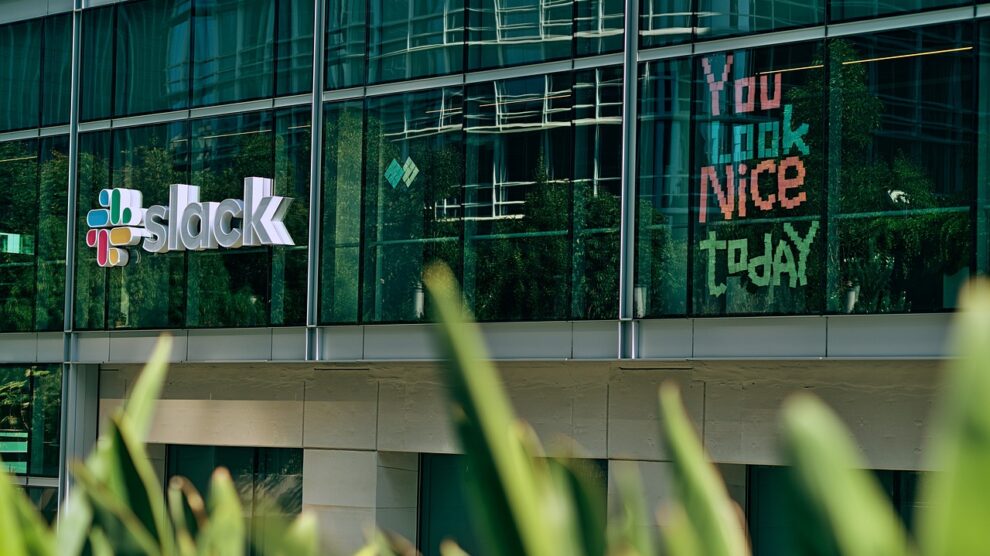In a business world increasingly embracing remote work, tools like Slack have helped change the game. What started as an internal communication software for remote teams, Slack has established itself as a formidable network and recruiting device.
Today, businesses are laser-focused on new and better recruitment strategies, given the influence of the Great Resignation on hiring. Prospective hires are now far more discerning with which companies they decide to invest their time, and the old ways of enticing new talent to one’s organization may not be as relevant.
To attract top talent in the past, recruiters have relied on well-crafted job listings, cold-call headhunting approaches through LinkedIn, or sponsored ad campaigns to draw the attention of worthy candidates. Conversely, job-seekers may realize that in this new world of work, the old ways of finding a job have been largely unsuccessful.
Sending out resume after resume into the void and competing with hundreds — sometimes thousands — for one position is an untenable situation. Many are turning to alternative methods of networking, including Slack channels.
Career Enhancement through Slack
Since the advent of social media, the continued value of digital communities and connections has been easy to observe. Those on the job hunt or seeking to uplevel their careers have long used platforms such as LinkedIn or even Facebook and TikTok to connect with others in their industry, get noticed by people, and market themselves in new ways.
Slack channels offer a similar community platform. With so many people taking on the role of digital nomad in a working environment that has permanently accepted the legitimacy of remote work, the lack of community connection can often be the one major downside to all that freedom and flexibility. Slack channels give digital nomads and other remote workers the chance to commiserate with colleagues in their field, bounce ideas off of them, and have water-cooler moments that they may miss being out of an office environment.
This type of networking is not just good for morale, but can help remote workers build their careers through meaningful connections. Companies often release job opportunities in Slack channels before releasing them to the world at large. This gives those participating in industry-specific channels a first look at what opportunities may be available, and allows them to have a head start at applying.
Industry-specific channels — such as Tech Workers Club Slack — give tech workers seeking positions and tech companies looking to hire a chance to come together. These channels can be a source of support for laid-off workers, a source of information for those who may be new to the industry or returning after a long break, and a great well of talent for companies looking to cut out the middleman of job listing after job listing.
According to data from the University of Wisconsin-Madison, 85% of jobs are filled through networking or referrals from those you know. In our digital world, networking is happening through channels like Slack — increasing your community and, therefore, opportunities for solid referrals.
Better Recruitment through Slack
Recruiters are on a mission to increase the number of quality applicants to positions. Any job seeker will notice that job listings found through traditional channels — such as Indeed or LinkedIn — often get hundreds of applicants within hours of being posted.
More and more, companies are relying on AI to sift through the massive number of applicants, but this approach can make finding the storied “diamond in the rough” challenging. With Slack channels, recruiters can dive right into a pool of quality applicants, rather than sift through applicants that should be immediately relegated to the “no” pile. Slack channels are industry-specific and tailored to the type of applicants specific recruiters want to hire.
While there are millions of users on Slack, recruiters can join interest-based groups that allow them to pare down potential candidates and speak directly to them, leading the recruitment process to be more personalized and effective than before. There are Slack channels for specific industries, skills, and groups that can give recruiters access to not only active job seekers, but also passive candidates and talented workers they may not have discovered through traditional recruitment tactics.
Recruiters can also create their own open channels through Slack and let the quality candidates come to them. These channels can be temporary to work in tandem with job fairs or recruiting events, or permanent to give job seekers and industry workers alike a chance to get an intimate look at your company. Through these specific company channels, you can host times for interested job seekers to speak directly to recruiters and provide greater access to key stakeholders within the company — not to mention other potential employees and current employees who could be their future peers.
While participating in a number of Slack channels can be time-consuming, the networking and referral potential is excellent. Recruiters can forge relationships with channel admins and leaders from whom they can gather pre-qualified referrals. They can also use those connections to reach a more significant amount of channels without having to directly participate themselves, saving the recruiter valuable time.
Today’s job market is highly competitive and requires “out of the box” thinking to prevail — on both the side of the job seeker and the recruiter. Slack channels offer a wealth of benefits to both parties and are a viable option for building one’s career and building a talented team in this new world of work.





